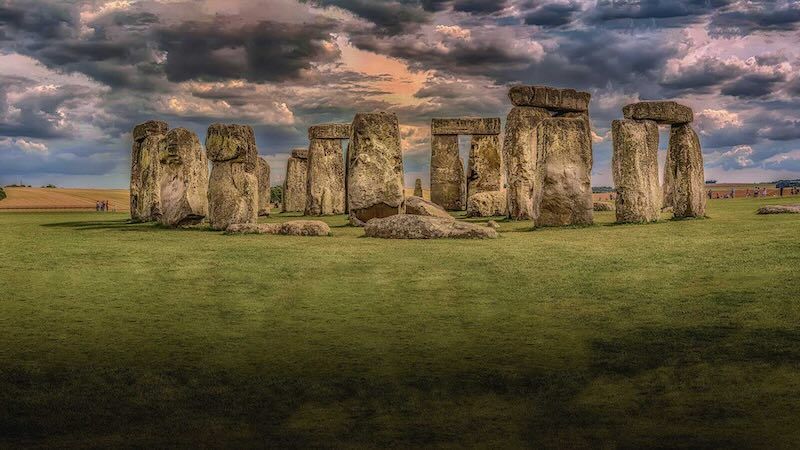Lans Smith
Merlin and Vivienne

This article is Part 8 in a series about The Grail Romances of the Middle Ages and the Individuation Process
by Lans Smith
There are several stories about the birth, life, and death of Merlin—always a mercurial, evasive figure. In those of the Middle Ages, he is conceived when a demon sleeps with his mother, a nun. Hence, he is born with supernatural powers, including knowledge of all things past from his demonic father, and of all things future from his Christian mother.
In Sir Thomas Malory’s version of Arthur’s birth, Merlin arranges for his conception, using magic to transform Uther into the semblance of the Duke of Tintagel, so that he can make love to his Queen, Ygerne. In Tennyson’s telling, Arthur is born at sea, off the coast of Tintagel, washing ashore at a place called Merlin’s Cave, after a sequence of nine flaming waves. Merlin retrieves the baby and takes him off to be raised in the forest, until he grows up and pulls the sword from the famous stone—Merlin’s magic again—and becomes King.
Along the way, Merlin performs a sequence of other heroic tasks: summoned by King Vortigern, he explains that the tower he is building falls down because there is a pool of water beneath the foundations where two dragons are fighting, a red and a white. He provides strategic advice to Arthur’s Grandfather and Father (Aurelius and Uther Pendragon), he builds Stonehenge, where they are buried, beneath the altar stone that sits in the middle of the circle.
But perhaps the most famous, and most poignant tale, is of his love affair with Vivienne, and of his death—the story Joseph Campbell shared with us during that remarkable day in the forests of Brittany.
There they take refuge from a tremendous thunderstorm, curling up together in the hollow of an ancient oak. And there she “beguiles” him, teasing out the mysterious spell that will make invisible to all but herself. She uses the spell to imprison him forever in the tree—either the magisterial oak of the Druids in which they have taken refuge, or in the embrace of a flowering hawthorn tree—such as the one Edward Burne-Jones portrays in his famous painting.
We know that this story engaged Jung, in a profound way, while he was carving the famous stone at Bollingen. Three out of the four sides were inscribed with alchemical texts, but the back side facing the lake was left with no inscription. “Do you know what I wanted to chisel into the back face of the stone?” Jung asks: “‘Le cri de Merlin!’ For what the stone expressed reminded me of Merlin’s life in the forest, after he had vanished from the world. Men still hear his cries, so the legend runs, but they cannot understand or interpret them. Hence, he ended in exile, and hence ‘le cri de Merlin’ which still sounded from the forest after his death. This cry that no one could understand implies that he lives on in unredeemed form” (MDR 228).
Marie-Louise von Franz pursues the connection between Jung and Merlin in her biography, exploring the complexities of Merlin’s character—who combines elements of alchemical Mercurius and Anti-Christ, thus reconciling the opposites of the Christian era that preoccupied Jung all his life, and whose voice (like Jung’s) we can hear only in the wind blowing through the oaks in the deeps of the forest.
In your journal, reflect upon the way the desire for power impacts your relationships, either personal or professional.
Share
Other blog posts

Jung Platform is an online education space that offers a range of depth psychological and spiritual perspectives. Our courses and talks explore the journey of life with guidance from highly regarded teachers.
We are passionate about offering practical, life-enhancing tools and opportunities to connect with others on this path. Our aim is to help people connect to their own soul, so they can live more fully and colorfully.
Stay inspired.Get our magical updates.
Thank you for signing up!
FEATURED LINKS
-
Headquarters in Salt Lake City, Utah
-
info@jungplatform.com
-
Copyright © 2026
